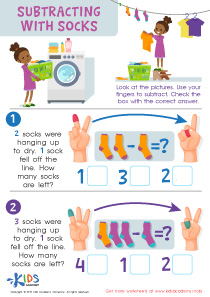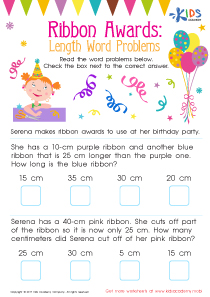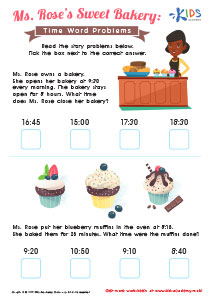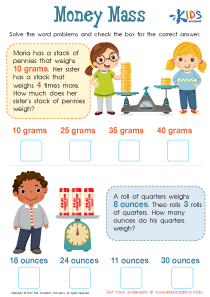Number Recognition Preschool Addition and Subtraction Word Problems Worksheets
17 filtered results
-
From - To
Enhance your preschooler’s math skills with our engaging Number Recognition Addition and Subtraction Word Problems Worksheets. Designed specifically for early learners, these worksheets blend foundational number recognition with critical problem-solving tasks. Children will explore simple addition and subtraction through relatable scenarios that cultivate their understanding of numbers in real-life contexts. Our resources encourage cognitive development and boost confidence in math, making learning fun and enjoyable. Ideal for both classroom and home use, these worksheets promote essential skills while keeping young minds engaged. Dive into a world of numbers and watch your child thrive in early mathematics with our thoughtfully crafted activities!
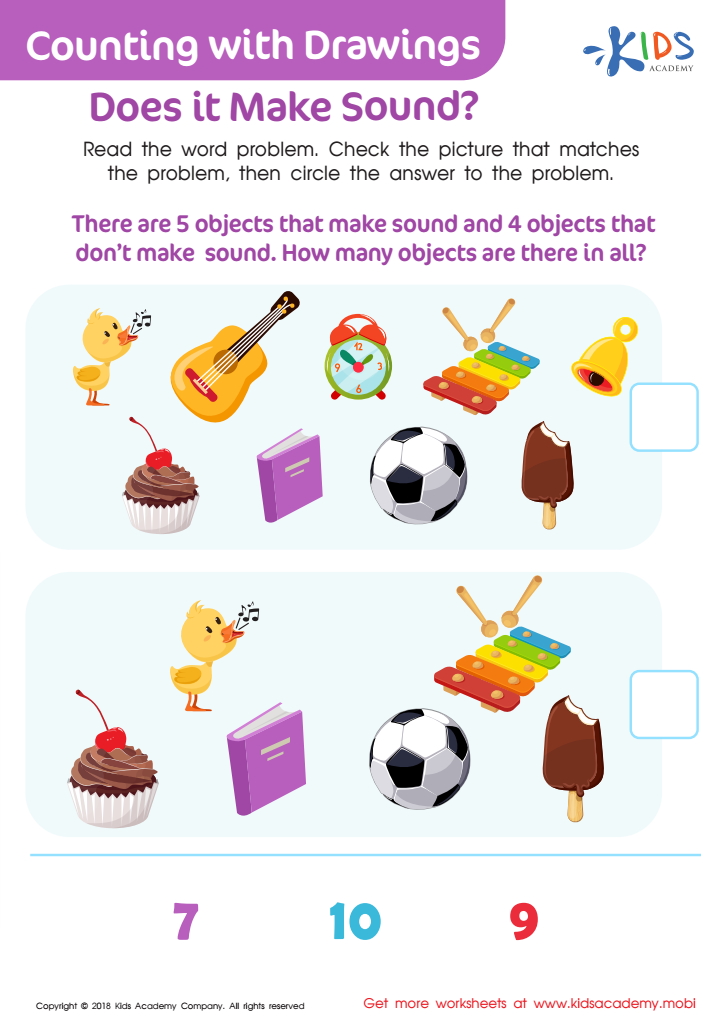

Counting With Drawings. Does It Make Sound? Worksheet
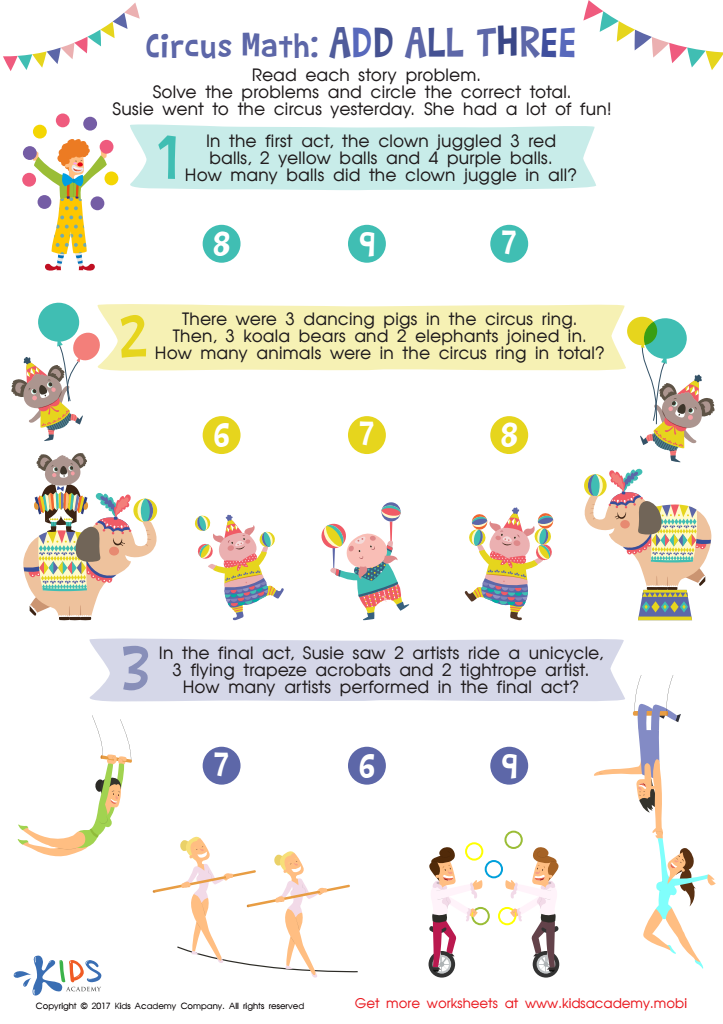

Circus Math Printable
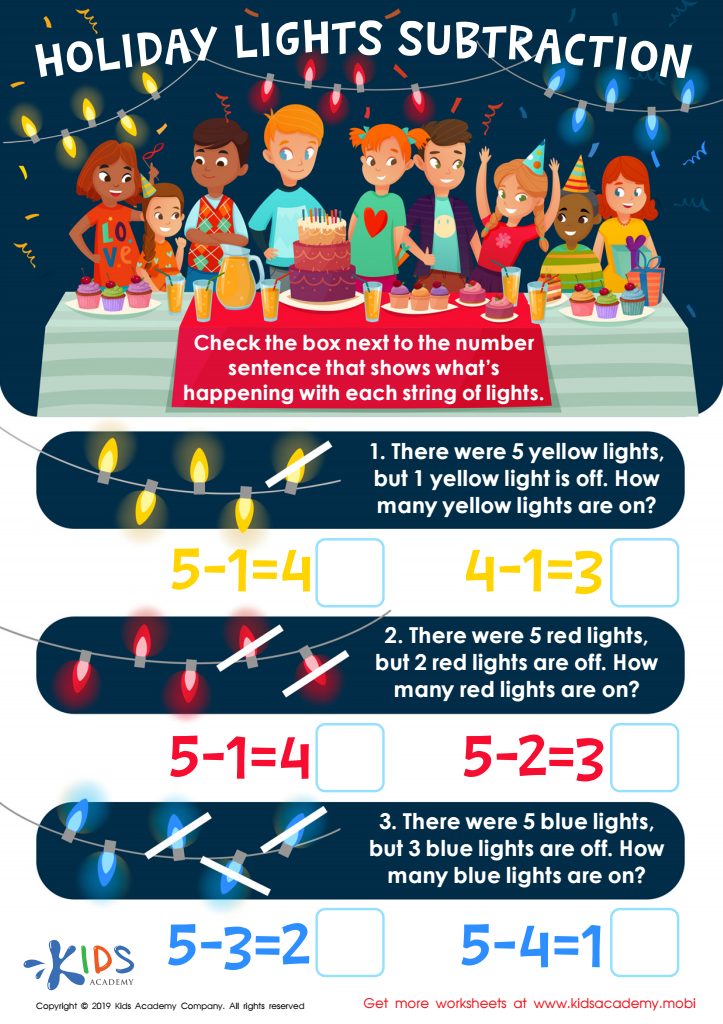

Holiday Lights Subtraction Worksheet
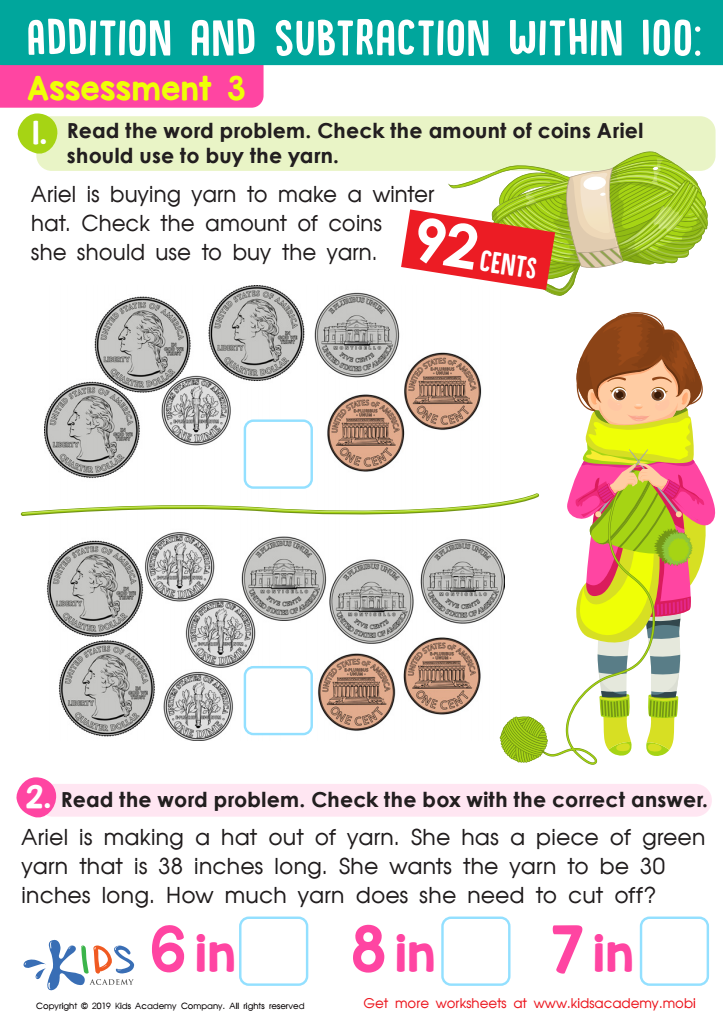

Assessment 3 Math Worksheet
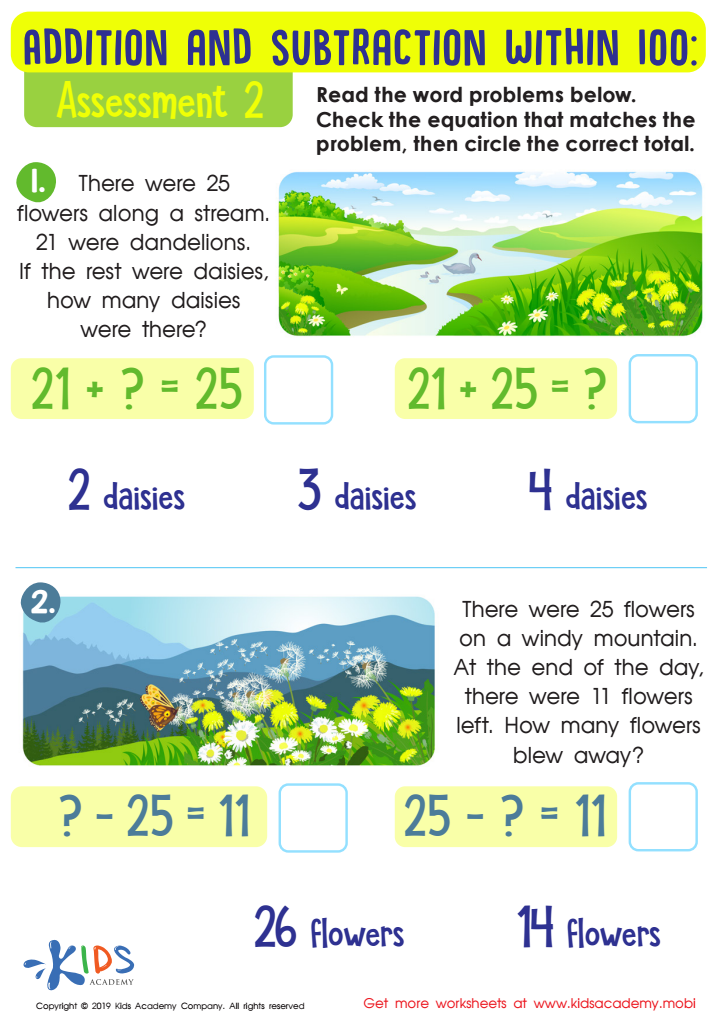

Assessment 2 Math Worksheet
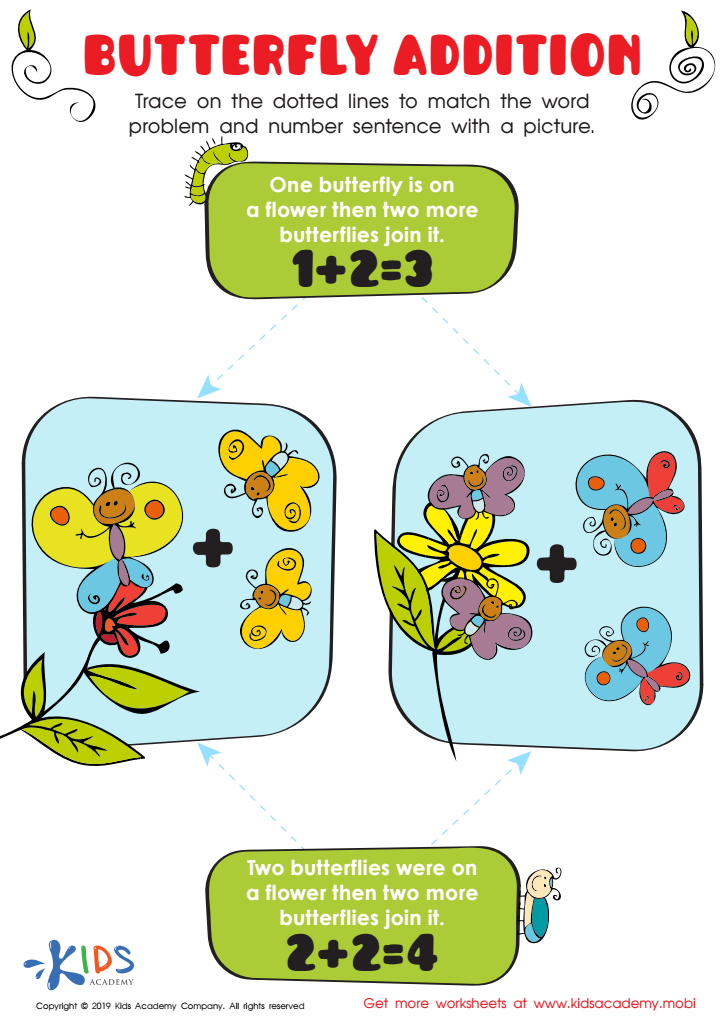

Butterfly Addition Worksheet
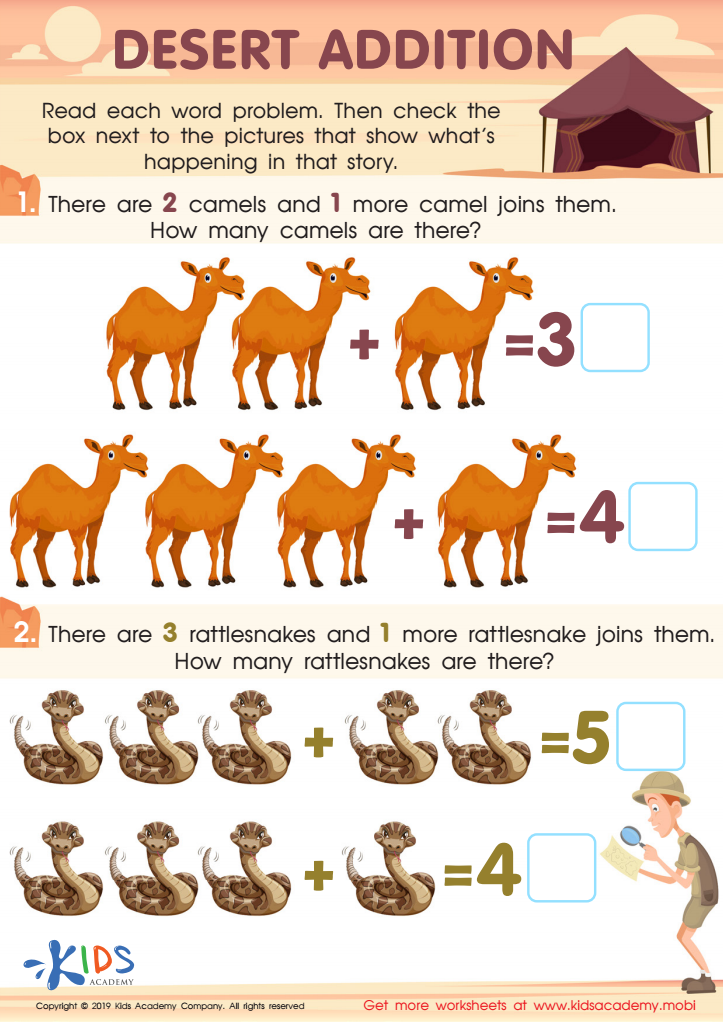

Desert Addition Worksheet
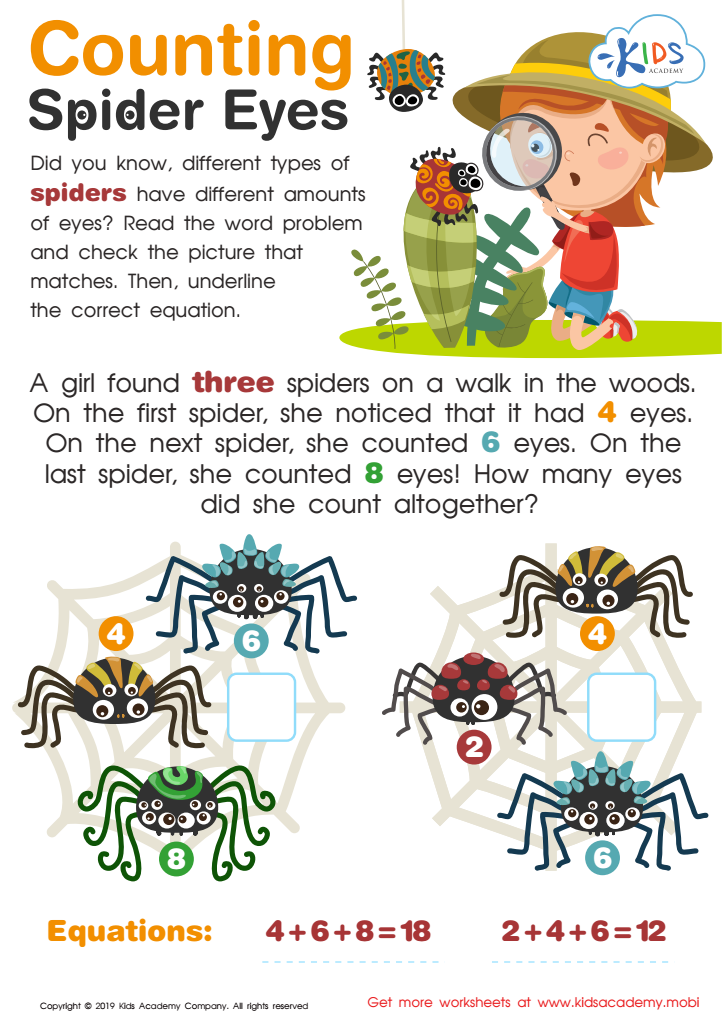

Counting Spider Eyes Worksheet


Counting Seedlings Worksheet
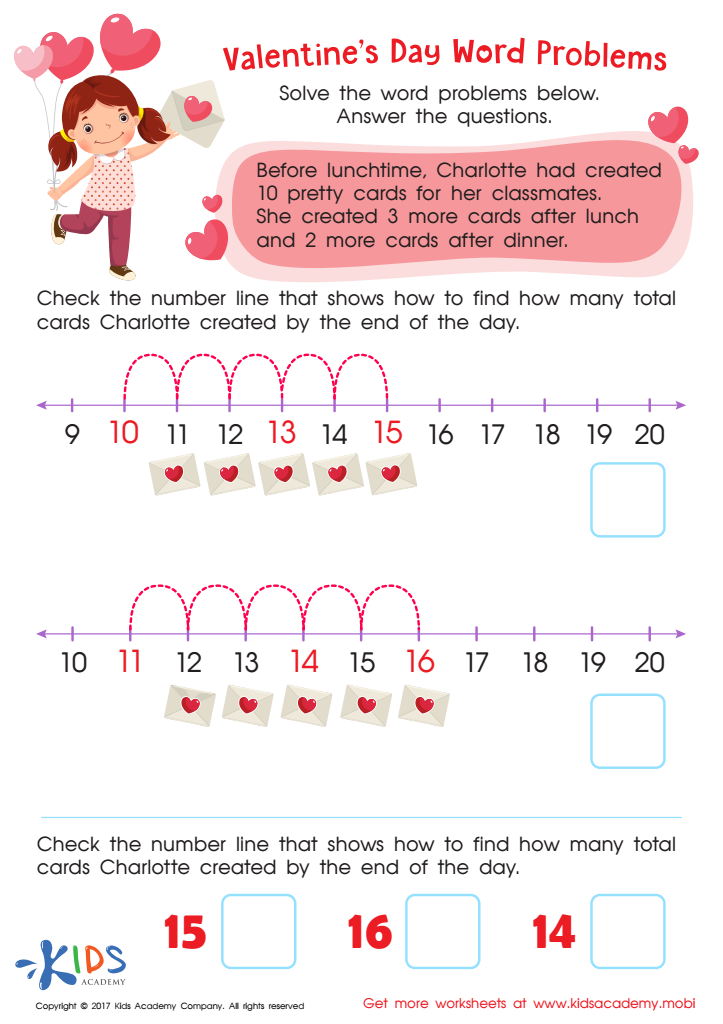

Valentines Day Word Problem Worksheet
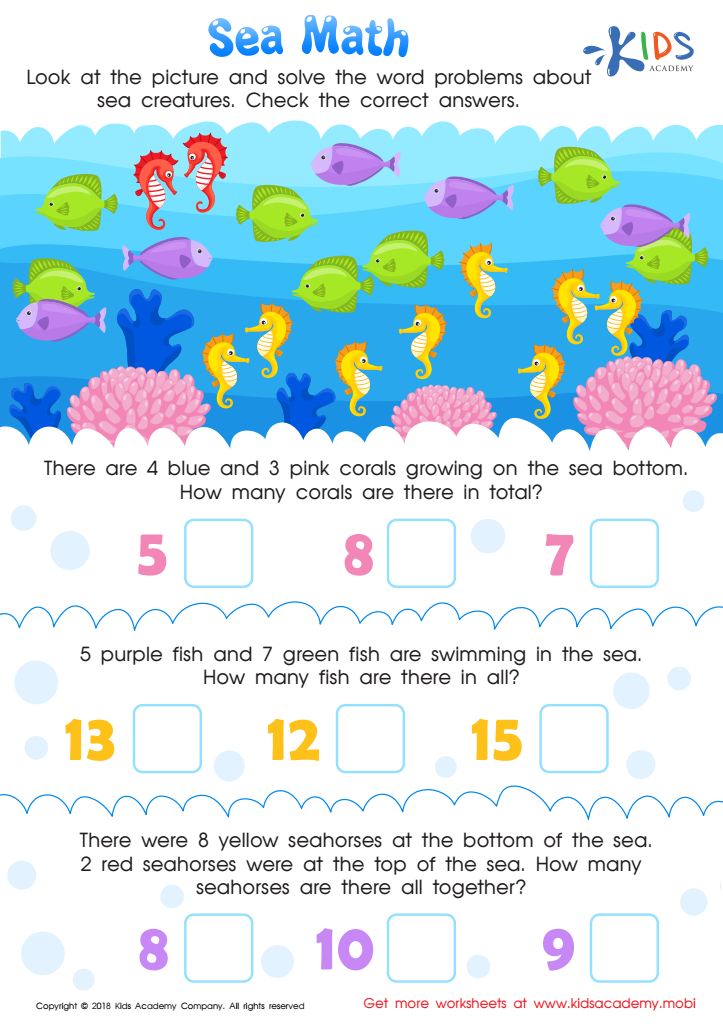

Sea Math Worksheet
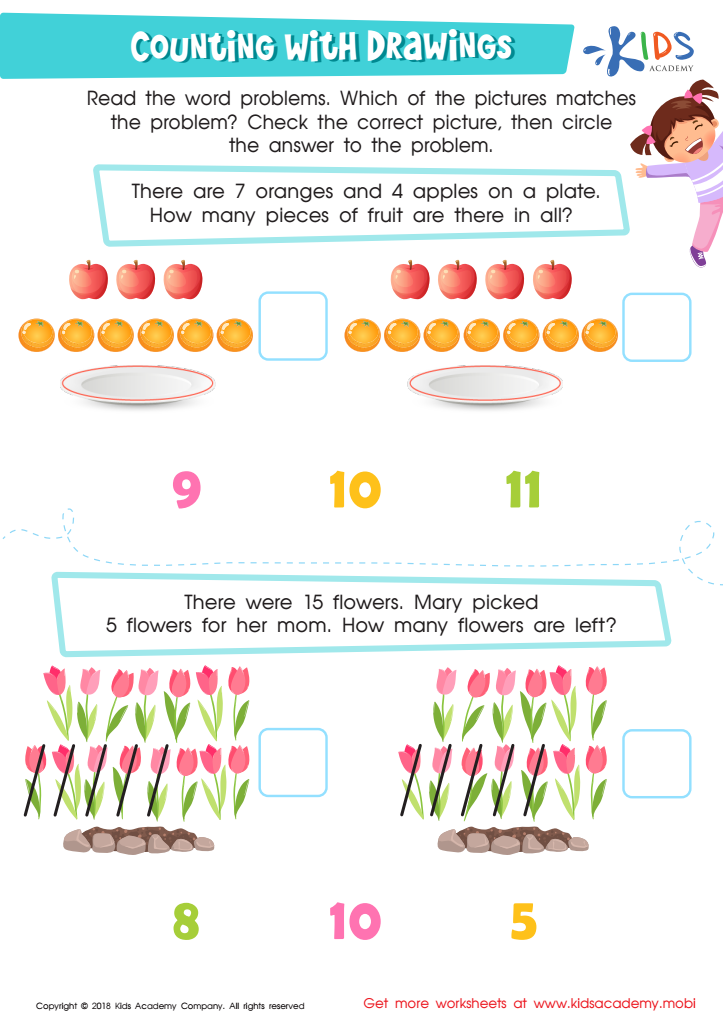

Counting with Drawings: Fruits & Chocolates Worksheet
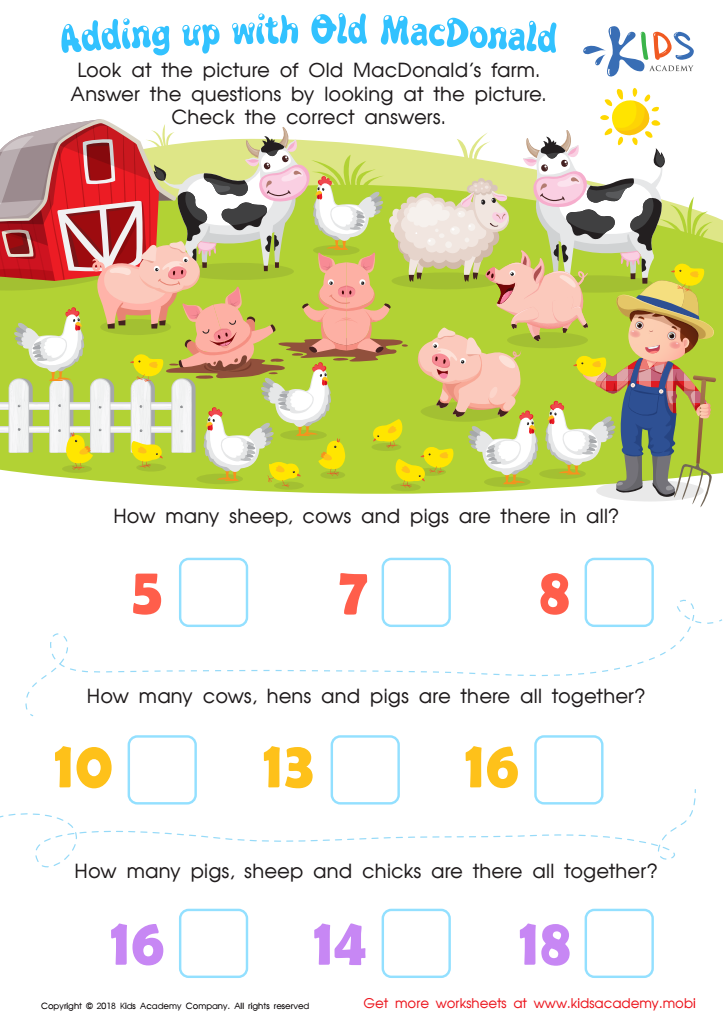

Adding Up with Old MacDonald Worksheet
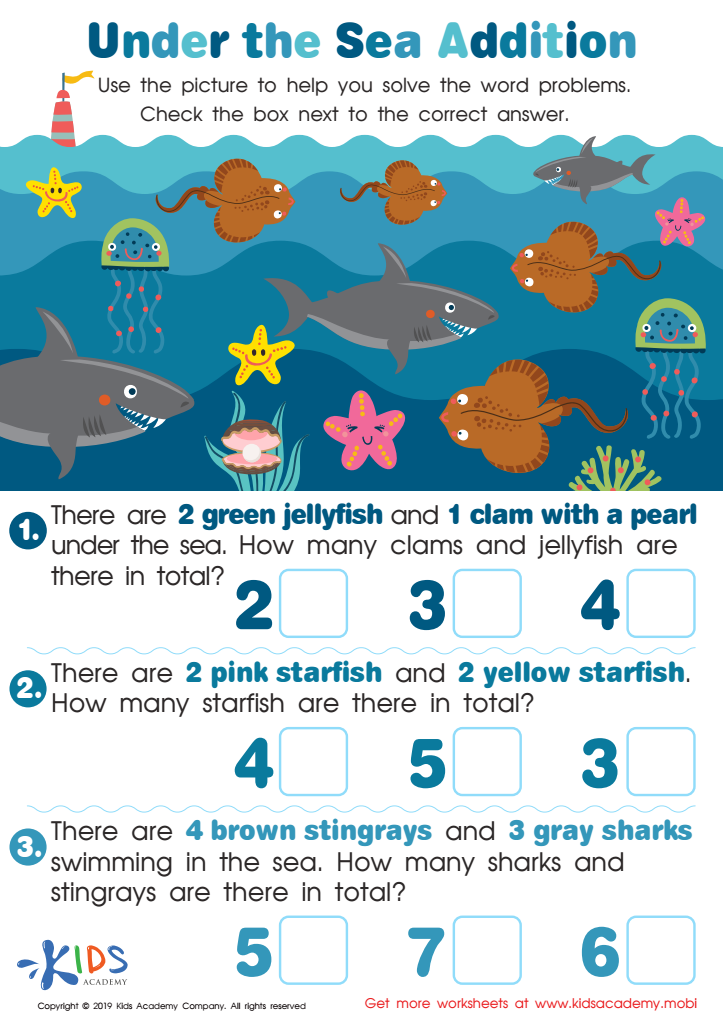

Under the Sea Addition Worksheet
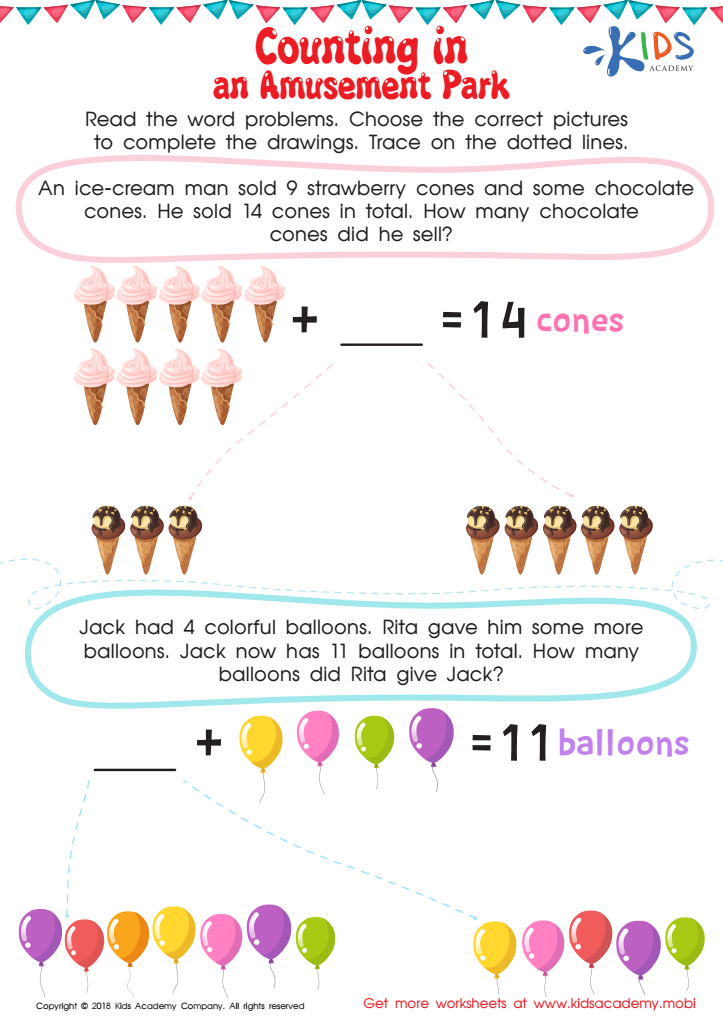

Counting in an Amusement Park Worksheet
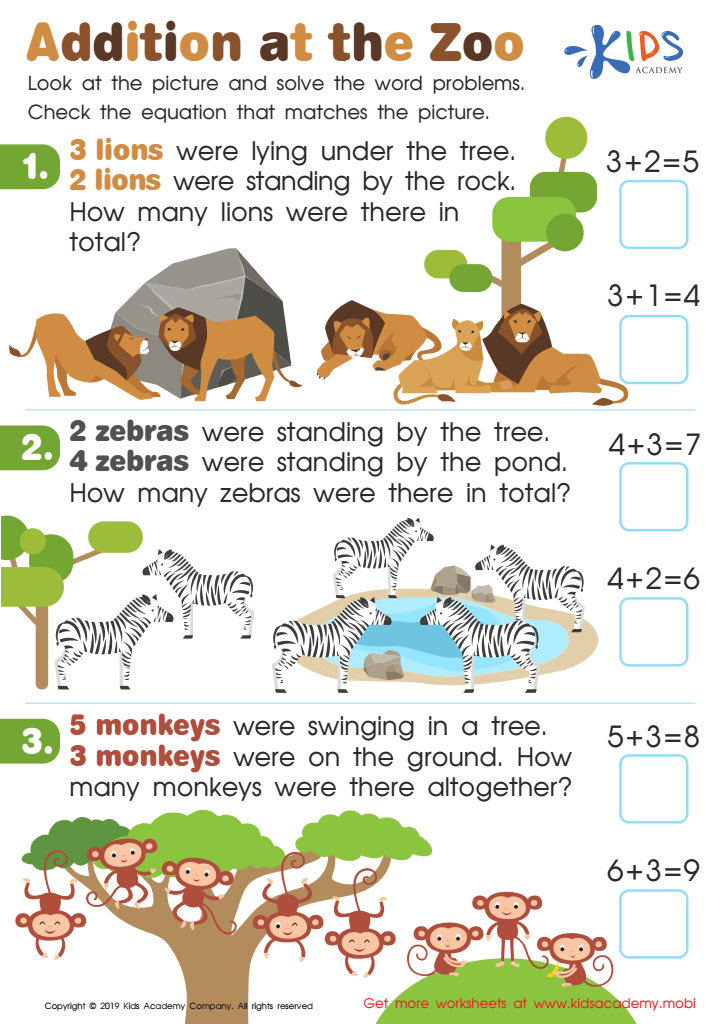

Addition at the Zoo Worksheet
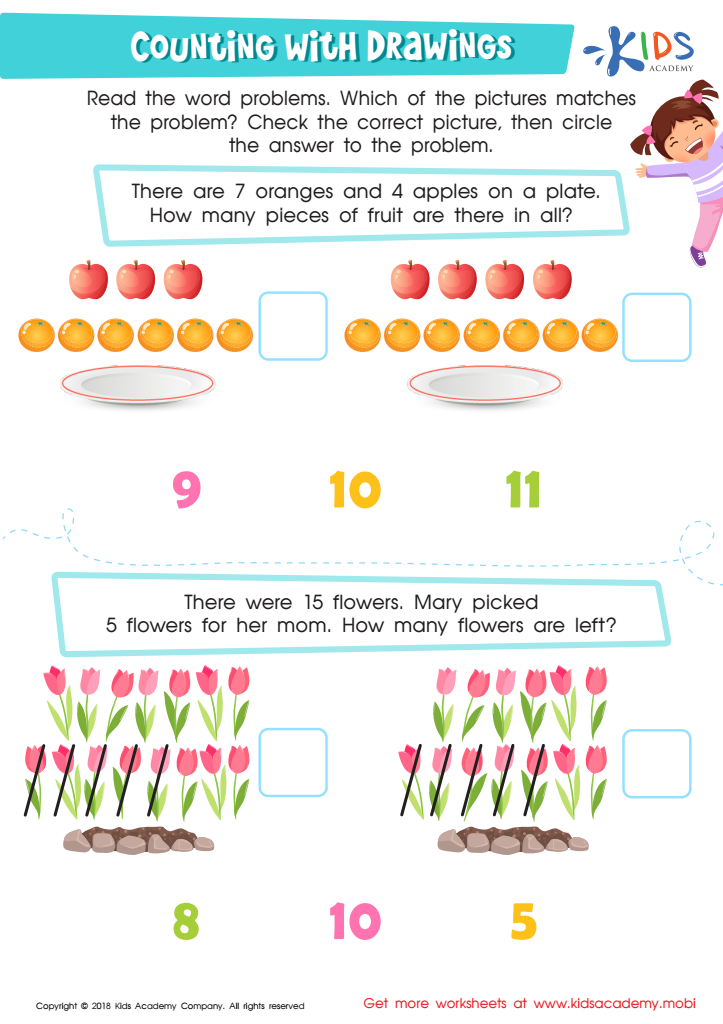

Counting with Drawings:Fruits & Flowers Worksheet
Parents and teachers should prioritize number recognition and word problems in preschool addition and subtraction because these foundational skills are critical for children's mathematical development. By exposing young learners to number recognition, they build an understanding of quantity and numerical systems, which forms the basis for all future math concepts. Early exposure aids in developing confidence and competence in mathematics, making learners more likely to excel in the subject later on.
Word problems are particularly important as they connect mathematical concepts to real-life situations. This helps children develop problem-solving skills and critical thinking abilities. Understanding how to interpret and solve word problems fosters a deeper comprehension of addition and subtraction, moving beyond rote memorization and into practical application.
Moreover, engaging with these skills lays the groundwork for effective communication. Children learn to articulate their thought processes when explaining the steps they took to solve problems—an essential life skill. Ultimately, reinforcing number recognition and practicing word problems helps prepare preschoolers for the math challenges they will encounter in school and everyday life, ensuring that they approach future math tasks with enthusiasm and the ability to reason numerically. Investing time in these areas now promotes lifelong mathematical fluency and reasoning.
 Assign to My Students
Assign to My Students







